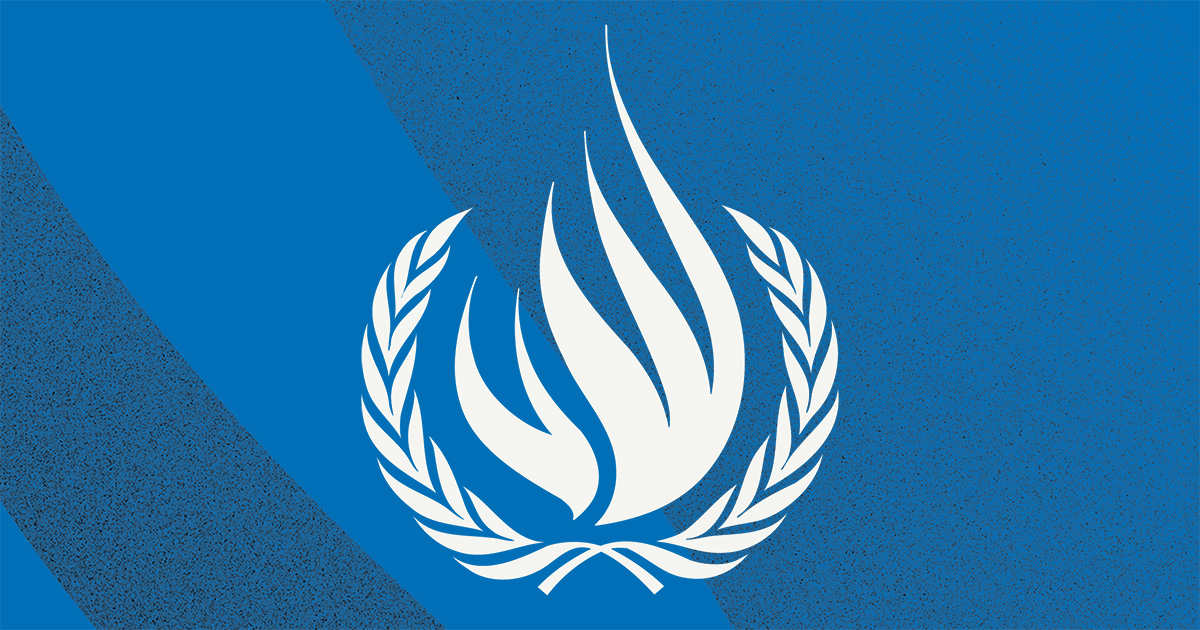
NEW YORK (8 November 2022) – The unresolved legacies of trade and trafficking of enslaved Africans and colonialism, post-colonial apartheid and segregation, continues to harm children of African descent in all areas of life, UN experts said.
In a report presented to the General Assembly by the Working Group on people of African descent, they highlighted discrimination against children of African descent in areas including the administration of justice, law enforcement, education and health.
“Due to racial discrimination, racial stereotypes, systemic racial discrimination and xenophobia, children of African descent are not considered as children at all,” Working Group Chair Catherine Namakula said when presenting the report.
“Throughout the diaspora, children of African descent face heavier policing, including more arrests, police surveillance, racial profiling, strip searches and excessive use of force. Law enforcement is in conflict with children of African descent,” the experts’ report said.
The report details how false racial stereotypes of criminality, culpability and dangerousness influence decision-making in relation to children and youth of African descent, including by legal system personnel, such as police officers, prosecutors, lawyers and judges globally.
“The childhoods of people of African descent are stolen by persistent racial disparities in policing and family interventions, including removal of children and termination of parental rights, and racialised decision-making and outcomes,” the report said.
The Working Group said it was time to take action to end excessive use of force, extra-judicial killings, disparities, racial profiling, racial stereotypes and stereotyping, systemic racial discrimination, hate speech and hate crimes. They called for a racial justice index to measure progress.
“We must dismantle discriminatory structures and create political space for a dialogue on reparations at the international, regional, national and local levels. Only the truth, accountability and justice can eliminate racial discrimination,” Namakula said.
The experts urged the UN and other stakeholders to stop using images of African children and children of African descent in undignified circumstances, for marketing and fundraising, and address negative stereotypes. “Children of African descent are not synonymous with poverty,” they said.
Following a country visit to Switzerland, the Working Group welcomed the decision of the Zurich High Court on 31 October, ordering the release of Brian K., a striking example of a stolen childhood and a superimposed adult identity with stark racial connotations. Brian was only 10 years old when he was first arrested for a false accusation. He had been held in pre-trial detention or preventive detention without interruption since 28 September 2017. Dominique Day, a member of the Working Group, contributed an expert racial analysis to the progression of the case this year.
“Leaving no child behind requires bringing the issues of children of African descent from the margins to the mainstream in education, health, social services and child justice. Humanity owes the best it has to give to every child without exception,” Namakula said.
“The lives of children of African descent are humanity"s opportunity to decisively discontinue centuries of marginalisation of generations of one of the most oppressed group of persons of the world,” she said.
ENDS
The experts: The Working Group of Experts on People of African Descent was established on 25 April 2002 by the then Commission on Human Rights, following the World Conference against Racism held in Durban in 2001. The Working Group is composed of five independent experts: Ms. Catherine S. Namakula (Uganda) current Chair-Rapporteur; Ms. Barbara Reynolds (Guyana) current Vice-Chair; Ms. Dominique Day (United States of America); Mr. Sushil Raj (India) and Ms. Miriam Ekiudoko (Hungary).
The Working Group is part of what is known as the Special Procedures of the Human Rights Council. Special Procedures, the largest body of independent experts in the UN Human Rights system, is the general name of the Council’s independent fact-finding and monitoring mechanisms. Special Procedures mandate-holders are independent human rights experts appointed by the Human Rights Council to address either specific country situations or thematic issues in all parts of the world. They are not UN staff and are independent from any government or organization. They serve in their individual capacity and do not receive a salary for their work.
For more information and media requests please contact: Christina Saunders (christina.saunders@un.org or hrc-wg-africandescent@un.org).
For media inquiries related to other UN independent experts please contact Renato Rosario De Souza (renato.rosariodesouza@un.org) or Dharisha Indraguptha (dharisha.indraguptha@un.org)
Follow news related to the UN’s independent human rights experts on Twitter: @UN_SPExperts.
Concerned about the world we live in?
Then STAND UP for someone’s rights today.
#Standup4humanrights
and visit the web page at http://www.standup4humanrights.org









